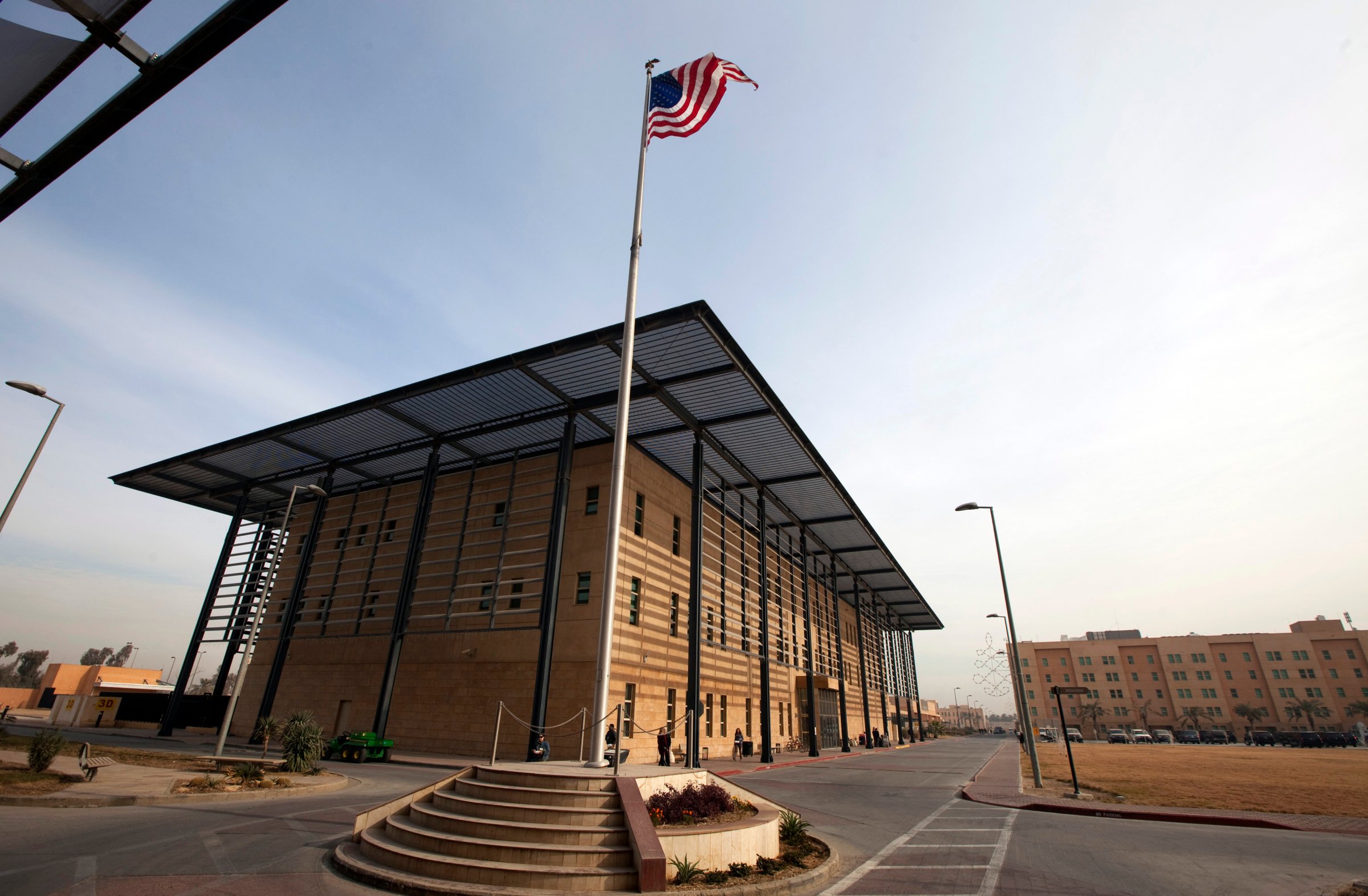
The U.S. State Department announced Sunday that the U.S. Embassy in Baghdad will stay open as militant extremists in Iraq continue their offensive toward the city, but it will also take a number of increased security measures to protect its staff.
“As a result of ongoing instability and violence in certain areas of Iraq, Embassy Baghdad is reviewing its staffing requirements in consultation with the State Department,” spokesperson Jen Psaki said in a statement.
The State Department said it will increase the number of security personnel in Baghdad, while other embassy staff members will be relocated to the Consulate Generals in Erbil and Basra as well as the Iraq Support Unit in Amman, Jordan. Most of the embassy staff will remain on site and “continue to engage daily with Iraqis and their elected leaders — supporting them as they strengthen Iraq’s constitutional processes and defend themselves from imminent threats.”
The Pentagon also announced that the U.S. military would provide security assistance to diplomats stationed in Baghdad. “A small number of DOD personnel are augmenting State Department security assets in Baghdad to help ensure the safety of our facilities,” said Pentagon Press Secretary Rear Adm. John Kirby.
The move to beef up security in Iraq comes after the State Department faced criticism over its lack of security at the U.S. consulate in Benghazi, Libya, which was overrun by militants in a 2012 attack that killed 4 Americans including Ambassador J. Christopher Stevens. But the embassy compound in Iraq has both a far heavier military presence and stronger fortifications than the Benghazi compound had.
More Must-Reads from TIME
- Cybersecurity Experts Are Sounding the Alarm on DOGE
- Meet the 2025 Women of the Year
- The Harsh Truth About Disability Inclusion
- Why Do More Young Adults Have Cancer?
- Colman Domingo Leads With Radical Love
- How to Get Better at Doing Things Alone
- Michelle Zauner Stares Down the Darkness
Write to Nolan Feeney at nolan.feeney@time.com